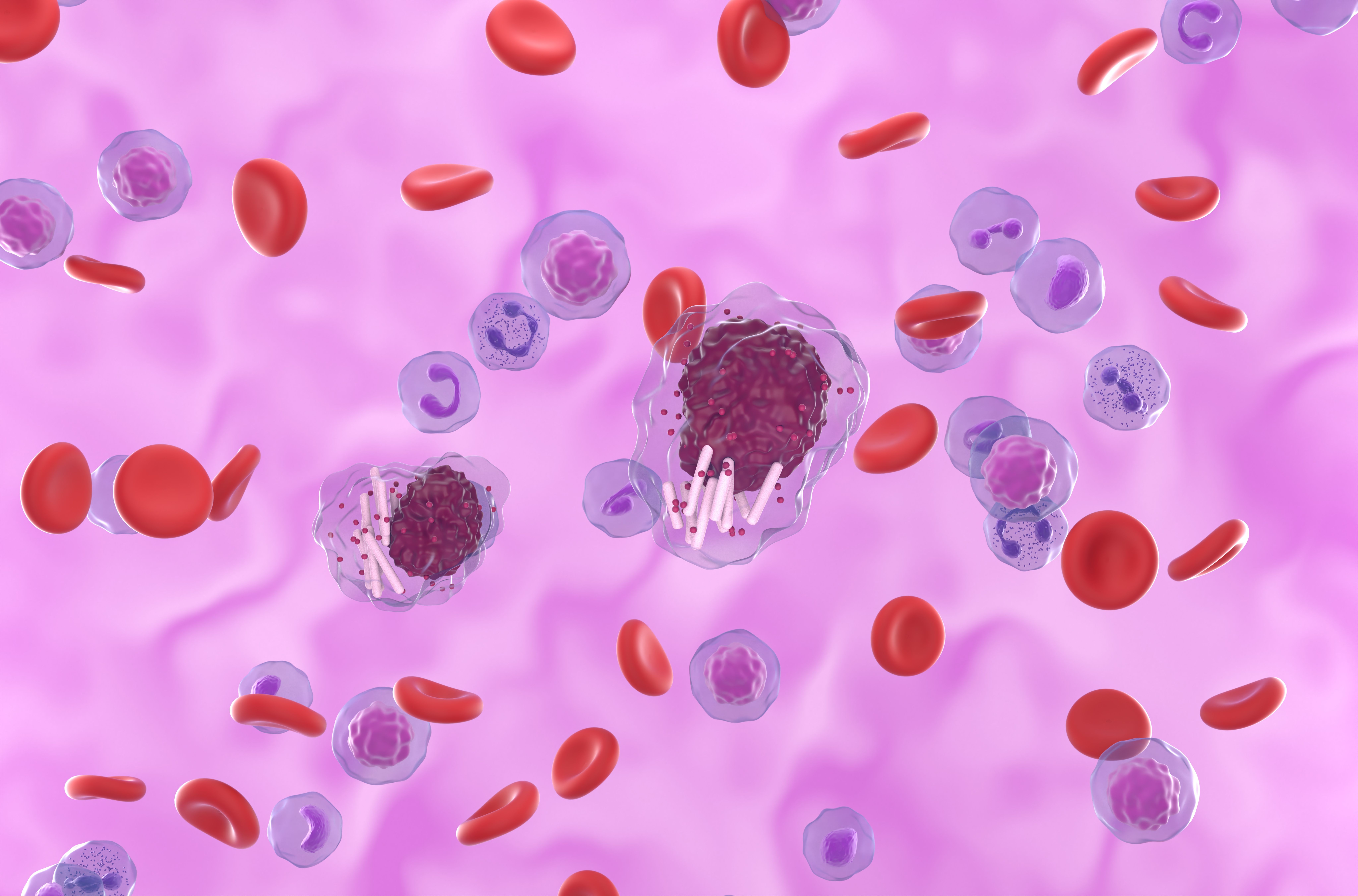- Center on Health Equity & Access
- Clinical
- Health Care Cost
- Health Care Delivery
- Insurance
- Policy
- Technology
- Value-Based Care
Ibrutinib Shows Similar Efficacy Across Trials in Chronic Lymphocytic Leukemia
Matching-adjusted indirect comparison methodology was utilized to compare ibrutinib arms across the ALPINE and ELEVATE-RR trials.
Ibrutinib, a first-generation Bruton tyrosine kinase inhibitor (BTKi) indicated for relapsed/refractory (R/R) chronic lymphocytic leukemia (CLL), was found to have similar efficacy across the ALPINE (NCT03734016) and ELEVATE-RR (NCT02477696) trials, according to the results of a study published in Blood Cancer Journal.1
In each study, ibrutinib was used as the comparator for a second-generation BTKi, and the authors used matching-adjusted indirect comparison (MAIC) methodology to determine its efficacy across the 2 studies. The ELEVATE-RR trial compared acalabrutinib with ibrutinib in patients with previously treated, high-risk CLL, while ALPINE assessed the efficacy of zanubrutinib vs ibrutinib in patients with R/R CLL. In the trials, acalabrutinib demonstrated progression-free survival (PFS) noninferiority and improved tolerability compared with ibrutinib, and zanubrutinib demonstrated superior PFS and and an improved safey profile compared with ibrutinib.
Using MAIC, the investigators compared the ibrutinib arms across these separate trials. MAIC uses individual patient-level data (IPD) from one trial and aggregate data from another; after weighing, the IPD are reexamined to match the outcome definitions from the aggregate data, the investigators explained.
Chronic lymphocytic leukemia cells in blood illustration | Image credit: LASZLO-stock.adobe.com

Recently published research that used MAIC methodology to compare the ibrutinib arms of ALPINE, ELEVATE-RR, and the RESONATE trial (NCT01578707) of ibrutinib vs ofatumumab implied that ibrutinib underperformed in ALPINE.2 The investigators of that study, Ghia et al, noted that there are limitations to indirect comparisons due to factors such as varied protocols and unique patient profiles.
The authors of the current study discussed that, despite the inclusion of key patient baseline characteristics such as bulky disease and prior treatments, Ghia et al excluded several other characteristics deemed critical for an appropriate comparison across trials. These included sex, TP53 mutation status, Binet stage, and others.1
Therefore, the present study aimed to evaluate the efficacy of ibrutinib across the ALPINE and ELEVATE-RR trials using a more comprehensive list of matching variables than Ghia et al to address the reported underperformance of ibrutinib in ALPINE.
After matching and weighting, the differences between independent review committee (IRC)–assessed PFS (HR, 0.80; 95% CI, 0.49-1.28; P = .3485), PFS evaluated by the investigators (HR, 1.18; 95% CI, 0.75-1.86; P = .4827), and overall survival (OS) outcomes (HR, 0.91; 95%CI, 0.50-1.65; P = .7539) were not statistically significant between the ALPINE and ELEVATE-RR trials, the investigators found.
Interestingly, especially when considering the results of Ghia et al, ibrutinib in ALPINE showed a numerical “overperformance” compared with ELEVATE-RR regarding PFS-IRC and OS. The investigators discussed the importance of considering both IRC- and investigator-assessed PFS for unanchored MAICS, because using different PFS measurements may impact conclusions.
As evidenced by previous trials, such as research published by Signorovitch et al,3 the use of MAIC can provide useful information on the comparative efficacy of treatments that were evaluated in separate trials, which can fill gaps for health technology assessments, the investigators wrote.
Despite the usefulness of the methodology, which Signorovitch et al said can “provide timely and reliable comparisons between treatments when indirect comparisons based only on published aggregate data are limited by cross-trial differences,” the authors of the present study argued that MAIC analyses cannot replace “gold standard” randomized controlled trials (RCTs), and that these results should be interpreted with caution.
The ibrutinib arm of RESONATE was not included in the present study. The investigators explained that both ELEVATE-RR and ALPINE were more contemporary trials that compared a next-generation BTKi to ibrutinib. However, they noted that they would expect ibrutinib to perform slightly better in RESONATE compared with ALPINE.
“While MAICs provide a basis for hypothesis generation with regard to treatment efficacy across trials, they are not a substitute for head-to-head RCTs, as they cannot balance all observable and unobservable differences at baseline. Consequently, ultimate evidence of relative efficacy must be sought within RCTs,” the investigators concluded.
References
1. Shadman M, Tedeschi A, Mohseninejad L, et al. Similar efficacy of ibrutinib arms across ALPINE and ELEVATE-RR trials in relapsed/refractory chronic lymphocytic leukemia: a matching-adjusted indirect comparison. Blood Cancer J. 2024;14(77). doi:10.1038/s41408-024-01044-4
2. Ghia P, Munir T, Burger J, et al. P645: Ibrutinib for treatment of relapsed-refractory chronic lymphocytic leukemia: a matching-adjusted indirect comparison of 3 randomized phase 3 trials. HemaSphere. 2023;7(S3):pe78258de. doi:10.1097/01.HS9.0000969484.78258.de
3. Signorovitch J, Sikirica V, Erder M, et al. Matching-adjusted indirect comparisons: a new tool for timely comparative effectiveness research. Value in Health. 2012;15(6):940-947. doi:10.1016/j.jval.2012.05.004
